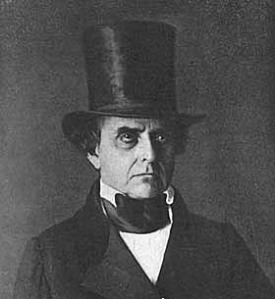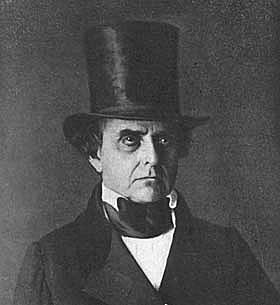By Louise Hindle
Louise Hindle is IEA’s Academy Coordinator. A British import, Louise graduated from the University of Manchester with a B.A. Honors Degree in English Literature and Language, completed her post-graduate teacher training at The University of Cambridge, and has recently completed her dissertation in Educational Leadership and Innovation with the University of Warwick. Louise has 20 years of experience in education as a high school literature teacher, lead teacher, administrator, adviser, and consultant. IEA’s Academy program, described here, provides elementary and middle school students with challenging enrichment classes that focus on exploration and application of knowledge.

“Now, what I want is, Facts. Teach these boys and girls nothing but Facts….Plant nothing else, and root out everything else… nothing else will ever be of any service,” declares Mr. Gradgrind in Charles Dickens’ novel Hard Times. Gradgrind is, of course, a grotesque parody of all that education shouldn’t be. Ingrained in his face, Gradgrind, like the educational system he advocates, is “inflexible, dry and dictatorial,” demanding only closed-answer responses with absolutely no space to think, let alone enquire. Inexorable in his approach, Gradgrind looks at his room of students and sees “empty vessels,” vessels he must fill to the brim with the facts he determines most useful. The one thing needful in this context is a 19th century industrialized utilitarian view of education: keep it if it’s “useful,” lose it if it’s not, and let’s not think about who decides what’s useful. Furthermore, it’s an educational system where the distance between the teacher and the students is a steadfastly vast unexplored wasteland, devoid of personal interaction, engagement or – dare we say it – enthusiasm for teaching and learning.
In 1992, my younger self was being interviewed for the Post-Graduate Certificate in Teaching Training in the UK. I was asked which 19th century novel I could imagine teaching to a class of restless teenagers. I identified Hard Times as the best text to help illuminate, as I argued then, to restless teenagers how much “better” the education system was for them now. In 2013, my thoughts are different, and I wonder if we have made any progress as all around us nations battle out their place in international performance tables with what seems, at times, little thought given to what and how we should be teaching our 21st century youngsters. In the face of such performativity, I find myself thinking more about what is “needful.” Coordinating the Academy program at IEA prods me to contemplate this on a daily – and nightly – basis. We are fortunate that we are unencumbered by grade-level and state standards and that classes are not defined by a child’s chronological age. We are fortunate to be able to harness the talents of amazing teachers who take fascinating, intellectually challenging content and telescope it into teaching and learning experiences for these, our youngest, learners. Unencumbered we may be, but we are also determined to provide the best service possible. And so, as the fall session draws to a close, now is a good time to consider the one (or more) things needful for our gifted and high potential Academy students. What follows are observations, not solutions….
What do they need?
1) They need feeding, intellectually speaking.
Without fail, our students arrive because they just want more. They are curious, sometimes for the parents, exhaustingly curious. They have questions no-one else seems able to answer. Their minds need feeding, not always at a rapid pace, but with a sense of challenge and high expectation. They take pleasure in applying their codes in Neuro-Energy II; they relish grappling with structures in Molecular Biology. At the same time, they need to be encouraged to take risks and find the resilience to face a challenge, to practice scansion and learn their lines for Shakespeare, to present their ideas in Astronomy II. They need feeding, but they also need encouraging.
2) They need teachers who are mentors.
Academy teachers could never be mistaken for Gradgrind. They are Rose, Ronnie, Cindy, Miss Megan, Andre, Josh and Warren. They are full to the brim with knowledge, but they are patient, respectful, reflexive, sensitive, caring and unrelenting in their enthusiasm. They see remarkable individuals, not vessels. They respond to questions, they listen and they give their students the space to learn comfortably. They are positive role models and mentors to each and every each child.
3) They need emotional reassurance and encouragement.
IEA prides itself on providing educational experiences which serve the whole child. We acknowledge the part emotions play in learning, especially intense for gifted and high potential youth. A caring, emotionally nurturing culture permeates throughout the organization. We understand this need and we do our best to offer a warm welcome and an ear. We love it when our parents encourage and support their son or daughter to venture into unknown lands, to take a writing or literature class, to attend a Genius Day and to make new friends. We know that our learners do and should still get excited by the small stuff – star stickers, leaves on the learning tree…knowing that the steps they take as learners are celebrated. We smile when we see them making friends, heads together, pouring over a book or a periodic table, not wanting to leave as they enjoy the reassurance, affirmation and encouragement they receive from one another.
And so as the fall session closes and I reflect on “the one thing needful,” I feel satisfied that we are personalizing our teaching for learning at IEA’s Academy and identifying and serving some key needs. As the post-class surveys come in from the real experts – the children – their words speak for themselves. On the whole they struggle to criticize, instead they comment positively on their “fascinating experiences.” They say that “the classes are so wonderful” that they are “hard in a good way.” They ask, “Why can’t this be my regular school?”
It seems then that the one thing needful is a place to be who they are right now and to explore who they might be, intellectually, emotionally and personally. Gradgrind wouldn’t be happy, but maybe social critic Charles Dickens would. To that end, I am pleased.
Interested in IEA’s Academy, which provides year-round enrichment classes for bright young minds in the Los Angeles area? Email Academy@educationaladvancement.org for more information about the upcoming Winter Session, which will take place January 11 – March 6!




